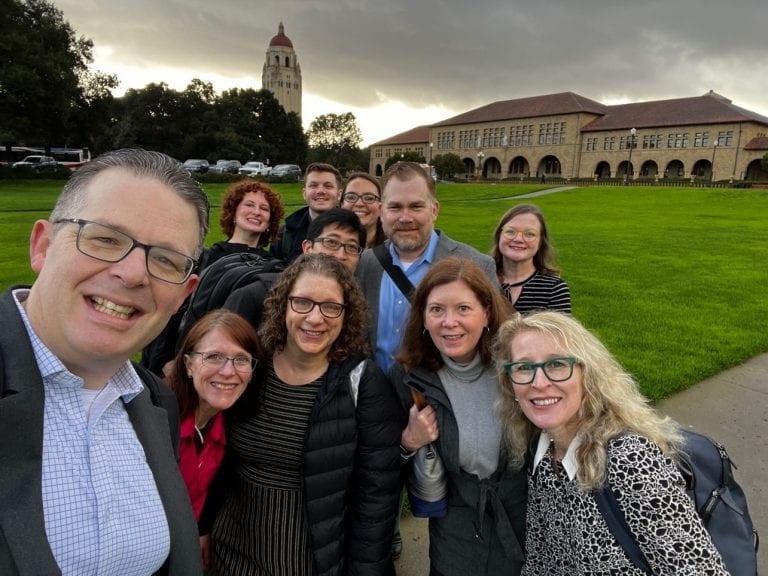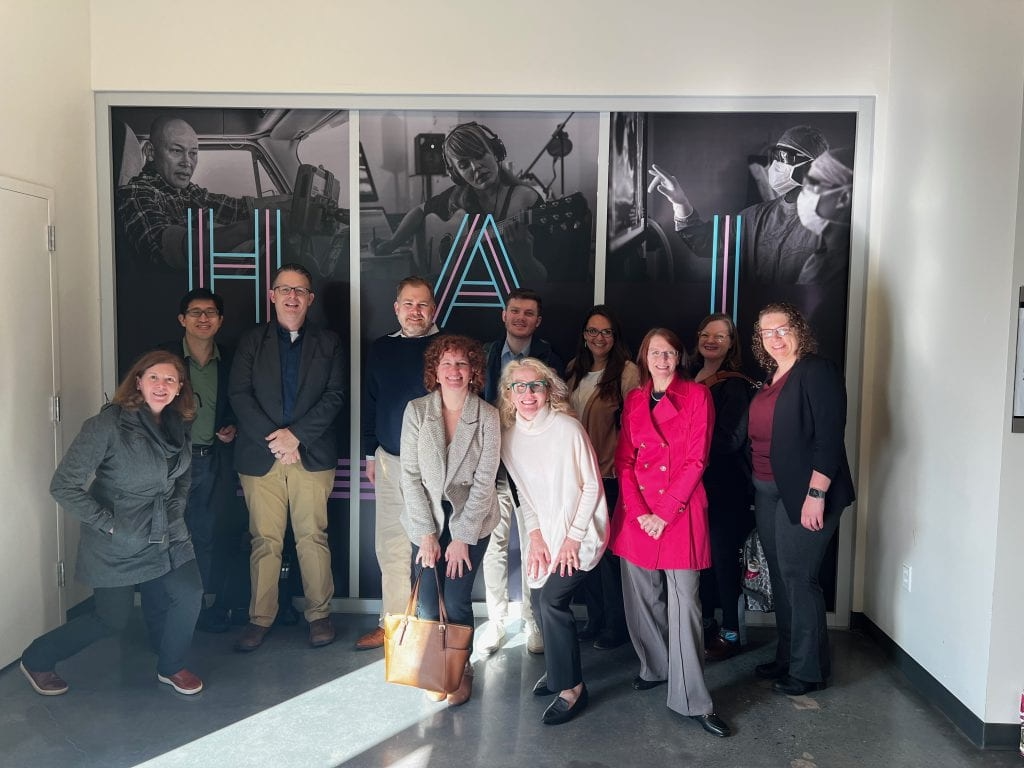
Insights from Stanford University Site Visit

In a recent site visit to Stanford University, the WashU Digital Transformation team, along with University Libraries’ staff and leadership from the Transdisciplinary Institute in Applied Data Sciences (TRIADS), gained insights from a wealth of similar initiatives on the Bay Area campus, centered around healthcare, AI, digital infrastructure, and cross-disciplinary collaboration.
The WashU team visited with the groups below, each of which plays an important role in fostering a culture of data-intensive research at Stanford, from the infrastructure, to support, to the faculty on the front lines.
HAI works at the intersection of humans and AI to enhance human performance. The institute primarily fosters interdisciplinary work through pilot funding, industry relations, convening events, and graduate fellowships. HAI’s impact is attributed to its emphasis on outcomes, effective internal and external communication, policy work, and industry partnerships.

HAI (Institute for Human-Centered Artificial Intelligence): HAI works at the intersection of humans and AI to enhance human performance. The institute primarily fosters interdisciplinary work through pilot funding, industry relations, convening events, and graduate fellowships. HAI’s impact is attributed to its emphasis on outcomes, effective internal and external communication, policy work, and industry partnerships.
RAISE Health: RAISE Health is a joint initiative between Stanford Medicine and the Stanford Institute for Human-Centered Artificial Intelligence (HAI). Institutes such as HAI operate outside of school structures which allows them to play a vital role in fostering cross-campus, project-based collaborations. RAISE aims to ensure a common trajectory by conducting internal environmental scans and organizing convening events to build a library of relevant work at Stanford.
Literacy Lab: The Stanford Literacy Lab emphasized a bottom-up collaboration model led by faculty and students, focusing on data science and human-centered AI as cross-cutting themes. The challenges of connecting departments across campus were evident, and efforts were made to educate faculty about opportunities to apply for grants and provide grant support from personnel with experience in the research area.
Educational Technology (EdTech): Considering the post-COVID landscape, Stanford has emphasized a hybrid/high-flex curriculum model. Stanford takes a highly structured approach to select and prioritize content creation projects, which are expected to not only produce a course but also generate academic output. EdTech has also adopted a self-service approach, offering both in-person and virtual solutions for smaller projects, accompanied by virtual live support and an accessibility assessment.
Chief Data Scientist, Stanford Medicine: Stanford University’s IT leadership and infrastructure is distributed across the School of Medicine and the rest of the university. Investments that have facilitated campus-wide data science collaboration at Stanford include the establishment of on-premises GPU clusters. The visit highlighted the importance of communicating success stories internally and hosting small gatherings to foster collaboration.
